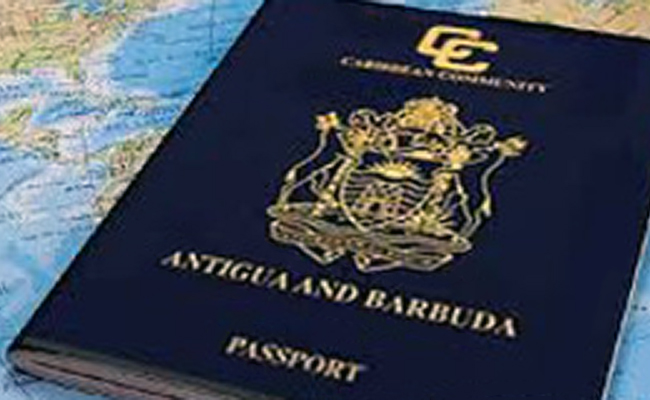By Elesha George
Antigua and Barbuda remains a viable destination to live and to work, not just for the ordinary residents, but for those wanting to acquire citizenship even amid the Covid-19 pandemic.
At least, that’s the impression given by a company that provides Citizenship by Investment Programme (CIP) services for the twin-island state.
The firm said that people “are very interested,” and the application processing time has not changed much even throughout the pandemic.
The CIP invites non-nationals to invest up to US$250,000 in the country in exchange for citizenship, and it has injected hundreds of millions of dollars into the economy, a significant amount of which the government uses to fund the social security scheme and national outreach programmes.
While applicants come from as far as Russia, India, Africa and South Korea, Observer understands that the programme is quite attractive among Brits, Germans and North Americans, specifically Americans.
According to the agent, Antigua along with St Kitts, is the most popular destination and “A lot of celebrities are attracted to Antigua.”
“It’s definitely a very big destination in the Caribbean right now, so we’re seeing a lot of demand there,” he remarked.
He also said that people genuinely want to go to Antigua compared to St Kitts or St Lucia where people do it for “the passport or the insurance policy.”
In 2019, the majority of the approved applicants came from China, a noticeable trend since the programme was established in 2014 when the percentage of Chinese applicants was at 40.91 percent – accounting for almost half of new citizens via this programme.
Although China still accounts for the largest percentage of applicants under the CIP, the number of Chinese who have been accepted by the programme declined to 29 percent in 2019, while people from other nationalities have increased their applications.
However, since the pandemic began to affect the global economy, there has been a significant decline in the number of people who applied to the programme in 2020.
In the 2021 budget speech, Prime Minister Gaston Bowne said a total of 366 applications were received, representing a 22 percent decrease.
Nonetheless, he said, the CIP generated $115.7 million in 2020 and that the government has a target to double the number of applicants this year.
It takes three to five months to complete an application process and get an Antigua and Barbuda passport after what the agent described as “a very thorough due diligence process.”.
In October 2020, Chief Executive Officer of the Citizenship by Investment Unit (CIU), Charmaine Quinland-Donovan told Observer that the agency had noticed an increase, near to the pre-Covid-19 levels.
In March of that same year, Quinland-Donovan said the agency had embarked on a comprehensive reorganisation of its operating processes to facilitate greater electronic engagement and maintain response time on its online platform which it launched in 2019.
In a recent communication with Sam Dyson, a CIP real estate agent, he shared the following: “From a real estate perspective the Covid-19 pandemic has had significant impact on CIP purchases throughout 2020. From the outset in March and April we saw a marked decline in individuals and families enquiring about CIP through real estate. We saw an increase in the overall interest in CIP though real estate investment occurring toward the end of 2020, this upward trend has continued into 2021.”
He continued, “It is our impression that this recent upward trend has occurred due to two reasons, firstly that applications were delayed and put on hold as the pandemic swept the globe during the first half of 2020. As individuals began adjusting to a new reality toward the end of 2020, it seems that they are now choosing to push ahead with applications and property investments, irrespective of restrictions, in the hope of some future abatement of travel restrictions. Secondly, as the pandemic has continued through 2020, more and more organisations and individuals have made dramatic changes into adapting to remote working. This has had a knock-on effect of providing more opportunities for remotely managed businesses, globally networked organisations and global citizens, all of which have become much more “normal” due to the pandemic.”

